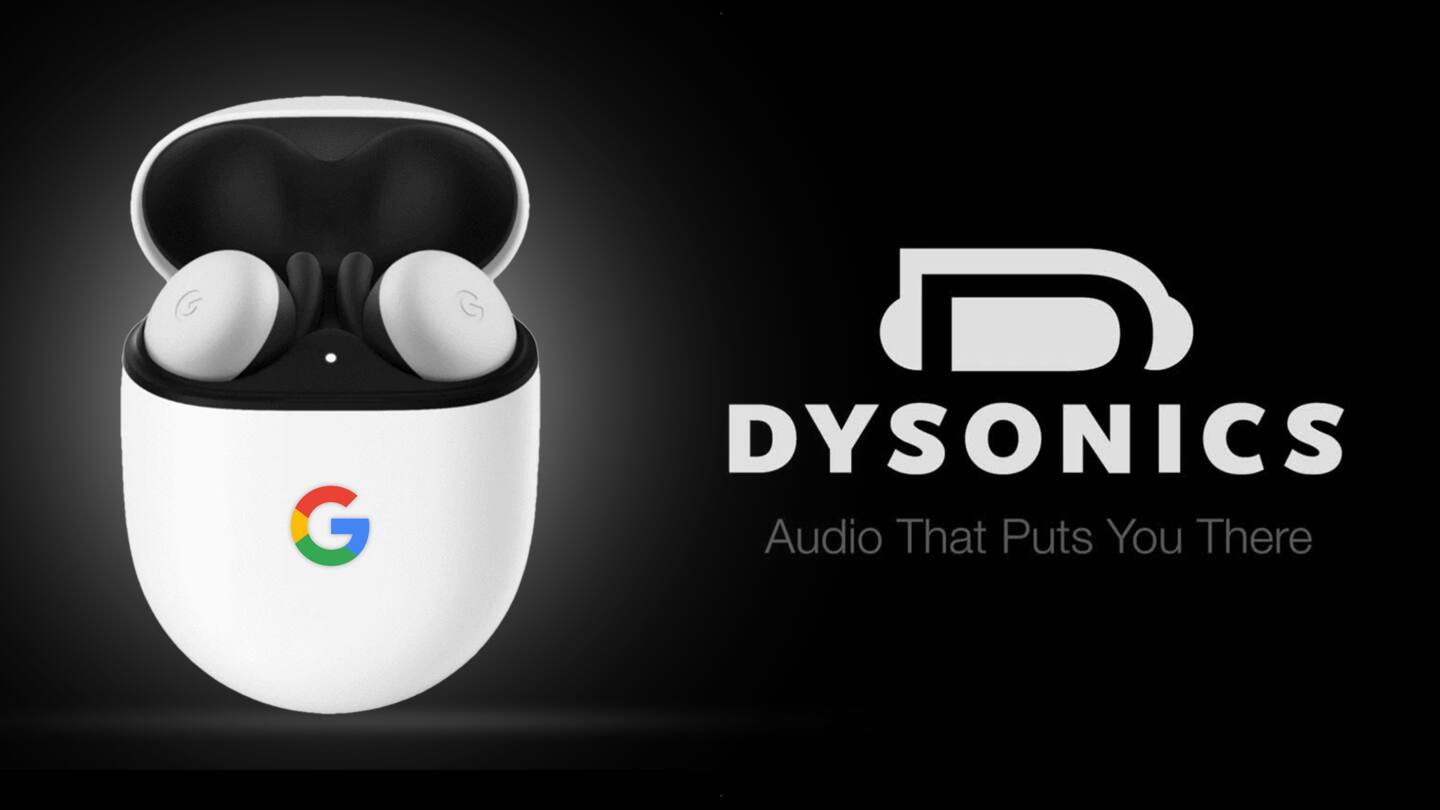
Google's Dysonics acquisition could bring 3D audio to Pixel Buds
What's the story
Google recently acquired 3D audio start-up Dysonics. The acquisition took place quietly in December last year and came to light in a recent filing with the US Patent and Trademark Office (USPTO), Protocol reported.
The acquisition could bring spatially aware audio technology to the Pixel Buds. The tech replicates the effect of surround-sound speakers through smaller in-ear devices such as the Pixel Buds.
Noteworthy products
Dysonics primary expertise lies in spatial audio for headphones, VR
The 2011 start-up Dysonics first built a motion sensor that gave any off-the-shelf headphone spatial awareness capability. The company also collaborated with Virgin America to enable surround sound on its in-flight entertainment system.
Further, it created a software toolset for 3D audio mastering aimed at virtual reality (VR) content creators.
Dysonics employees on LinkedIn noted that they are working on "audio hardware" at Google.
Spatial audio
Google's acquisition of Dysonics intellectual properties could improve Pixel Buds
Now, Google's acquisition of Dysonics's intellectual properties and patents suggests that the search giant could add spatial audio capability to the Pixel Buds, a feature already present on the competing Apple AirPods Pro and Samsung Galaxy Buds Pro.
Protocol also speculates that Google's Nest speaker could improve, although that is unlikely given that the company specializes in headphones and wearable audio devices.
Easier conversations
Moonshot Factory's speech segregation-based Wolverine project could benefit as well
We believe that Google could use Dysonics's spatial audio tech to further other pathbreaking hardware projects such as Wolverine.
Wolverine is a hearing enhancer intended to make conversation easier in crowded spaces. It is being developed by Moonshot Factory—another subsidiary of Google's parent company, Alphabet Inc.
Google co-founder Sergey Brin had even received early demonstrations of the Wolverine project in 2019.
Scanty details
Google could also develop spatial audio-capable over-ear AirPods Max rival
XDA-Developers also speculates that Google could develop an over-ear headphone with spatial audio capability rivalling Apple's AirPods Max.
However, besides a few USPTO filings, not much more is known about how Google is using Dysonics's technology. Even the financial aspects of the latter's acquisition remain unknown.
So, until the next iteration of the Google audio hardware releases, it's going to be a wait-and-watch game.